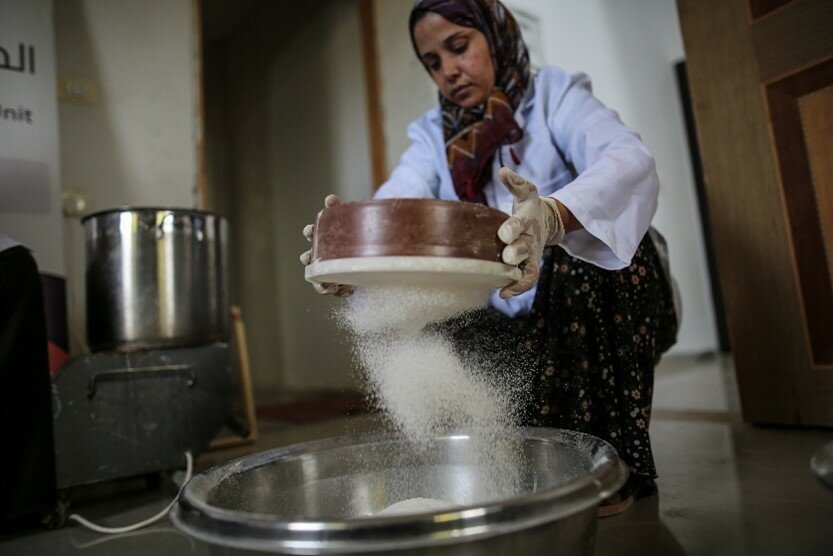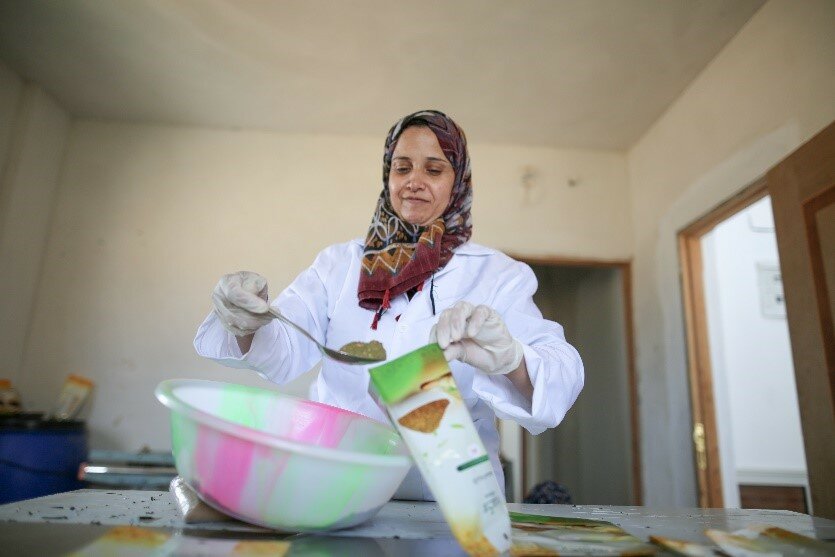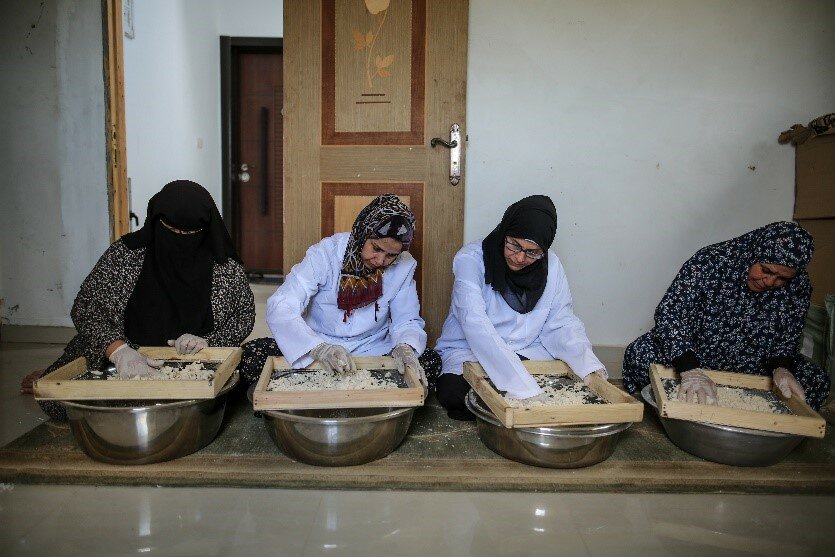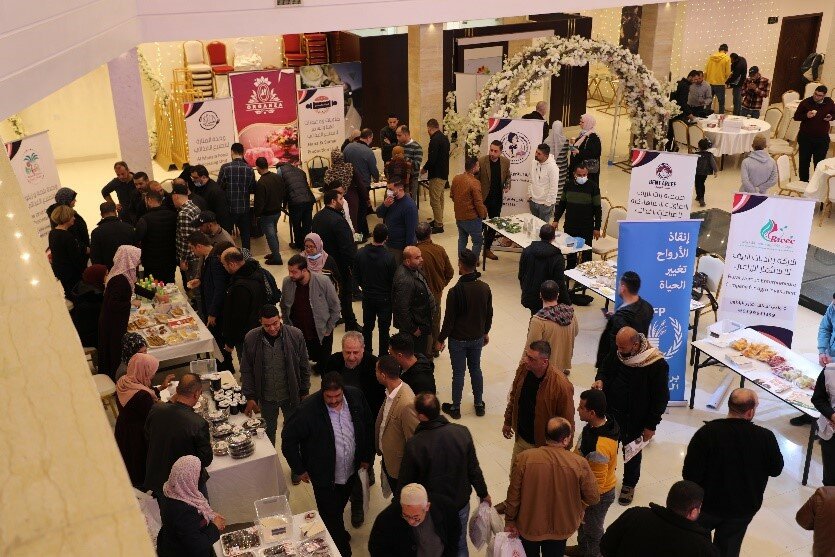
From their friendly, humble home in Gaza, 32-year-old Sahar and her family produce some of the most iconic Palestinian goods: coffee, maftoul, doqqa and zaatar. Their kichten is a swirl of herby smells.
Today, their products are quickly snapped up by local residents across the Gaza Strip. But not so long ago, as the COVID-19 pandemic and its devastating fallout swept across the region, the family business could barely stay afloat.
Many of us witnessed empty shops and locked doors after the pandemic and felt the lingering impact of "Out of business" signs.
But in the Gaza Strip, COVID-19 sharply worsened an already dire situation. The ongoing blockade and repeated escalations of violence over 15 years have left Gaza's economy in a fragile state.
Today almost 68.9 percent of Gazan youth are unemployed, and more than 60 percent of Gazans are food insecure, unable to meet their needs for healthy and balanced nutrition. Sahar and her husband were among young Gazans who were left with an income that could barely allow them to get by.
"It was hard to work during the COVID-19 lockdown, the 2021 escalation of violence on Gaza and the current high prices that slowed the production and limited my access to raw materials," recalls Sahar, who once counted among thousands of local youth lacking work opportunities.
Her fortunes changed dramatically last year, thanks to a joint United Nations initiative to mitigate the pandemic's impact on women entrepreneurs.

Targeting small and medium businesses, including cooperatives, the programme rolled out by the World Food Programme, and four of sister UN agencies, developed the skills and capacities of 40 women-led agribusinesses in the Gaza Strip and West Bank.
It offered one solution to soaring joblessness that affects more than one-third of Gazans under-25 who, who are among the most educated and highly skilled in the region - by supporting women in growing small businesses, it also helped to boost their self-reliance and access to equal opportunities.
Such business training can be a powerful tool to fight poverty in Gaza, where more than six in 10 people are food insecure and cannot access a healthy, balanced diet.
"In Gaza and similarly vulnerable contexts, there is an increasing need to support and promote small and home-grown businesses as a source of income, employment and a stimulant to local markets," says WFP Representative and Country Director in Palestine Samer Abdeljaber.

Sahar, her husband and the five female co-workers she hired during better times enrolled in the programme in a WFP collaboration with the Food and Agricultural Organization (FAO).
Skills they learned included food processing, finance, quality control and marketing. Each of the modules designed by WFP and FAO aimed to complement the others. The training targeted vulnerable women in underserved communities, offering them new career prospects in food production.
"These businesses are hope for a future where people are less dependent on traditional humanitarian assistance, are creating job opportunities for their communities, generating a steady income and ultimately benefiting a struggling economy," says WFP's Abdeljaber.
Following the trainings, WFP provided participating businesses with laptops to facilitate the digitalization of their management and accounting, and to scale up their social media capabilities.
"The training helped us update our marketing strategy and material to a more customer-friendly and attractive output," Sahar says.
WFP also organized a networking exhibit between businesses like Sahar's and local shops. Thanks to these links, the young entrepreneur managed to spread the word about her products across the Gaza Strip, from Rafah in the far south to downtown Gaza City.

"The exhibition took my business to the next level. I had already worked on packaging and marketing, applied everything we learned to my business and saw the impact through profits and sales," Sahar says
Indeed, Sahar's sales have almost doubled since the training. FAO also helped her and other entrepreneurs through the hurdles of formally registering with the Ministry of National Economy - a process that's helped to increase local trust in their products and services.
"My team and I found the training programme enriching", Sahar says, adding, "we were keen on attending the sessions - and spreading our new knowledge to others working with us."
The training course ran from July 2021 to March 2022 - a joint effort by UN Women, the Food and Agricultural Organization, the United Nations Development Programme and WFP to mitigate the socio-economic impact of COVID-19.






